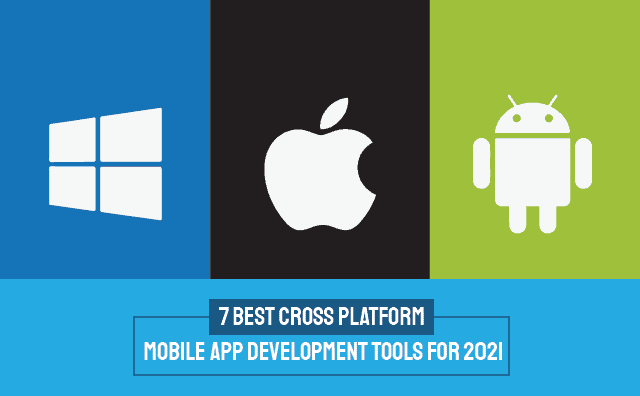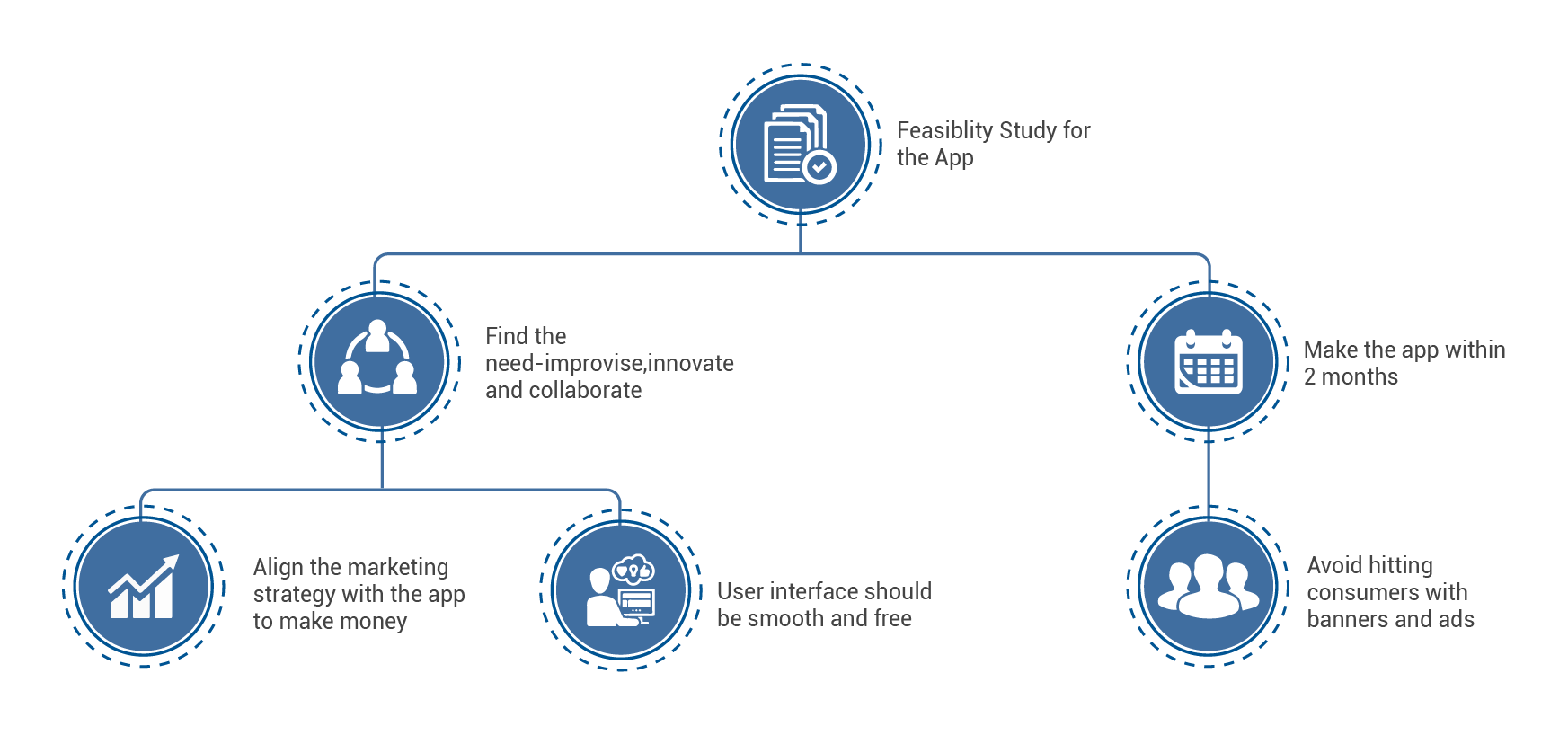Tag: custom mobile app development
Today we live in a world where machines possess an extraordinary ability to learn, reason, and make decisions, much like the human mind. This remarkable realm of technology known as Artificial Intelligence is not merely a product of science fiction or futuristic imagination. It has become an awe-inspiring reality that is transforming the landscape of countless industries.
But that’s just the tip of the AI iceberg.
In mobile development, AI can transform your customer’s device into a personal shopping assistant, a language guru, or a creative photographer all in the blink of an eye.
The integration of AI in mobile app development doesn’t stop there.
It unlocks a realm of possibilities for your customers, from personalized virtual assistants that organize their life, to fitness apps that act as their personal trainers, to healthcare apps that monitor their well-being.
But how do we understand the concept of AI in mobile apps?
Unraveling Artificial Intelligence in Mobile Apps
Simply put, AI is like the brain behind the scenes, making your apps smarter and more interactive.
One of AI’s superpowers is Machine Learning (ML). It’s like a super adaptable brain that learns from data and experiences. Machine learning algorithms analyze massive amounts of information to get better at tasks. They can recognize patterns, make predictions, and even understand your preferences.
Another clever component is Natural Language Processing (NLP). It’s like an AI language translator that allows you can talk to your app, ask questions, and it magically understands and responds. NLP allows your AI sidekick to grasp the meaning behind your words, making conversations with your app feel more human-like.
How does it help?
Read more: Understanding NLP: Will It Reign Supreme In Near Future?

From Mundane to Marvelous – Benefits of AI In Mobile Apps
Weaving the powers of AI into your mobile apps can enhance user experience. How? Like a brilliant and intuitive companion, AI-powered mobile apps can provide personalized recommendations. AI algorithms analyze user behavior, learn their tastes, and curate a world of suggestions.
Plus, it learns and grows with them. The more your customers use your apps, the smarter those apps become, tailoring their suggestions to your customer’s ever-changing whims and fancies and predicting their move, and effortlessly serving up what they need.
Read more: https://www.fingent.com/blog/is-ai-powered-mobile-app-what-you-need-for-your-business-now/
Key Applications of AI In Mobile Apps
AI brings a layer of intelligence to your apps that takes them to the next level. Here are some key applications that this has made possible:
1. Voice Assistants and Natural Language Processing
40% of mobile users use voice search at least once a day. – Comptia.
Natural Language Processing (NLP) enables the integration of voice assistants like Siri, Google Assistant, and Alexa into mobile apps. No matter how they phrase it, NLP enables your app to decipher the meaning and context of their spoken words.
It is capable of unraveling the intricacies of slang, deciphering accents, and even understanding complex sentences with multiple layers of meaning. It’s like having a language expert at your beck and call. But it doesn’t end there. NLP allows voice assistants to learn from every interaction, becoming more intelligent over time.
2. Personalized Recommendations
AI algorithms can analyze user data to provide personalized recommendations in mobile apps by utilizing machine learning techniques:
- Data Collection: Mobile apps collect user data through various means, such as user registrations, app usage tracking, explicit ratings, and implicit signals like clicks, views, and interactions.
- User Profiling: Such data is used to create user profiles that capture individual preferences, interests, and behaviors.
- Pattern Recognition: AI algorithms can identify similarities based on factors like item attributes, past behavior, and user demographics.
- Recommendation Generation: Based on the identified patterns, the algorithms generate personalized recommendations. For example, in a music app, the algorithm might suggest songs or artists similar to the user’s previous listening habits or recommend popular tracks among users with similar tastes.
The benefits of personalized recommendations for user engagement and satisfaction are significant:
- Enhanced User Experience: Users are more likely to discover new content they enjoy and spend more time using the app.
- Improved Discovery: Personalized recommendations help users explore new music genres, discover new movies or shows, or find products that suit their tastes, leading to greater satisfaction.
- Time and Effort Saving: With personalized recommendations, users can find relevant content more quickly and easily.
- Increased User Retention: When users receive preferred recommendations, they are more likely to remain engaged with the app.
- Business Benefits: Personalized recommendations result in improved conversion rates and increased customer loyalty.
3. Image and Video Recognition Tasks
AI plays a crucial role in mobile apps across industries, including e-commerce, social media, entertainment, gaming, and more. For example:
- Facial Recognition: This technology is widely used in mobile apps for various purposes, such as authentication, photo tagging, and personalization.
- Object Detection: With AI algorithms, mobile apps leverage object detection for a range of purposes, such as visual search and safety features.
- Augmented Reality (AR) Experiences: AI algorithms are employed in mobile apps to enable applications like virtual try-on for shopping, gaming, and navigation.
Read Case Study: How Fingent helped build a unique mixed reality application for a leading university that enables users to identify people using facial recognition!
4. Intelligent Chatbots
The integration of AI-powered chatbots in mobile apps revolutionizes customer support and interaction by enabling efficient and automated communication with users. Using AI algorithms, chatbots recognize the intent behind user queries and quickly search and retrieve relevant information to address user queries effectively.
Success Stories
Mobile apps have been able to enhance user satisfaction, drive revenue growth, and achieve operational efficiency, resulting in their success in the mobile app market. Here are some examples:
1. Instagram
Instagram, one of the “big three” social media platforms, utilizes AI algorithms to provide personalized content recommendations in the Explore tab. This greatly improves user engagement by helping users discover relevant posts and accounts. AI is also used for content moderation, and identifying and filtering out inappropriate or spammy content, thus creating a safer user environment.
Impact: AI integration in Instagram has contributed to increased user engagement by facilitating content discovery and improving user safety by detecting and removing harmful content. Today it is 4th most used social media platform and 5th most visited website.
2. Uber
Uber, a ride-hailing platform, employs AI algorithms to optimize its dynamic pricing system. Machine learning models analyze supply and demand patterns, traffic conditions, and historical data to determine surge pricing, ensuring efficient allocation of drivers and meeting high-demand periods.
Impact: AI integration in Uber enables efficient pricing strategies, ensuring the availability of drivers during peak demand and generating increased revenue for the company.
In 2022, Uber experienced substantial growth with a revenue of $31.8 billion, marking an 82% increase from the previous year. Furthermore, the number of completed trips also saw an increase, with Uber drivers recording 7.6 billion trips, exceeding the previous peak of 6.9 billion trips in 2019.
3. Amazon
Amazon, a leading e-commerce platform, extensively uses AI across its mobile app for personalized product recommendations, dynamic pricing, inventory management, and fraud detection.
Impact: AI integration in the Amazon app has led to increased user engagement by providing relevant product suggestions, improved customer satisfaction through personalized experiences, optimized pricing strategies, and enhanced operational efficiency.
In Amazon, it was observed that there is a 42% likelihood of a customer proceeding to a prospective product purchase. On the other hand, Walmart and Etsy have recorded figures of 16% and 13% respectively.
Amazon’s Alexa has taken over the world’s smart speaker industry, by securing an impressive 26.4% market share.
Emerging Trends in AI For Mobile Apps
Emerging trends in AI for mobile apps are shaping the future of mobile app development. Here are two key trends:
1. Edge Computing: Edge computing involves processing data locally on the device or in nearby edge servers, reducing the reliance on cloud computing. This trend enables AI-powered mobile apps to perform complex tasks and analysis directly on the device, leading to faster response times, enhanced privacy, and reduced dependency on internet connectivity.
Implications: The increasing adoption of edge computing enables apps to respond quickly to user inputs, process sensor data in real-time, and provide immediate feedback, leading to faster and more seamless experiences.
2. Federated Learning: Federated learning allows AI models to be trained collaboratively on decentralized data from multiple devices without transferring sensitive user data to the cloud. Each device performs local model training, and only model updates are exchanged, ensuring privacy and data security.
Implications: Future advancements will likely include greater transparency, explainability, and fairness in AI algorithms to ensure user trust and mitigate potential biases or discriminatory outcomes.
Personalize, Engage, and Future Proof with AI
In this era of technological revolution, artificial intelligence stands as a beacon of innovation and possibility. AI integration in mobile apps offers compelling benefits such as personalized experiences, improved user engagement, increased efficiency, advanced functionalities, data-driven decision-making, competitive advantage, and future-proofing.
These reasons make AI integration a strategic choice for app developers looking to deliver exceptional user experiences and drive the success of their mobile app projects.
By partnering with Fingent, you can leverage our expertise in AI and mobile app development to unlock the transformative potential of AI in your app projects. From custom travel apps to apps using AI enabled chatbots and virtual assistants, Fingent has created unique solutions for clients across the globe. Our commitment to delivering tailored solutions, adherence to data privacy, and end-to-end services make us an ideal choice for AI mobile app development.
Contact us, the leading custom software development company, and let’s explore the possibilities together.
Stay up to date on what's new

Featured Blogs
Stay up to date on
what's new



Talk To Our Experts
According to a 2020 report, 58% of real estate brokers have a clearly defined digital strategy, a figure that represents a 6% increase from the two previous years and thus indicates that an increasingly large percentage of the real estate industry is buying into the concept of digital transformation.
While the real estate industry is — and always will be — centered around interpersonal interactions between buyers, sellers, and agents, technology plays a more significant role in these transactions than ever before. Innovative real estate firms worldwide are leveraging futuristic technology far more frequently, and those that fail to adapt will find it hard to keep up.
Technology such as machine learning (ML) software, artificial intelligence (AI)-powered mobile apps, drones, and augmented reality (AR) solutions are no longer just “nice to have” in the real estate industry. Digital transformation is an inevitability that real estate professionals must embrace if they want to thrive in such a rapidly evolving business space.
Why Digital Transformation Is Inevitable for the Real Estate Industry
While many factors fuel digital transformation in the real estate industry, the most potent catalyst is consumers. Home buyers and sellers have grown accustomed to being able to perform a variety of essential life tasks online thanks to the ever-evolving nature of smartphones and other sophisticated internet-connected devices.
According to a 2022 report, 51% of all home buyers found the properties they purchased via the internet. Another 29% found their dream home with the assistance of a real estate agent, whereas just 4% located the home they eventually purchased via traditional signage.
These statistics indicate that the vast majority of prospective buyers are taking charge in their search for their next home. Real estate agents who want to keep pace must incorporate futuristic technology into their sales models or risk finding it increasingly difficult to provide consumers with the efficient and primarily digital experience they prefer.
Still, the industry is about more than buying and selling homes and real estate technology means more than improving sales. Many property management firms want to leverage technology for payment platforms, leasing and facility management, back office processes, and more. Most important to these management teams is having all those processes in one place.
Read more: Reshaping Real Estate Operations with Fully Integrated End-to-End Software.
Futuristic Technology is Poised to Reshape Real Estate
The real estate industry can solve many existing challenges by embracing digital technologies. From complex workflows brought on by the multitude of activities required of a real estate firm to communication shortfalls, there are many leading technologies that property services can embrace as part of a digital transformation. While there is no single answer, some forms of futuristic technology that are already making a big splash in the real estate industry include:
1. ML and AI
Machine learning and artificial intelligence technologies are true game changers for the real estate industry. They enable real estate agents and brokers to automate redundant tasks, like creating timesheets, filling out paperwork, generating offer documents, or scheduling meetings. Within property management, automation can lead to higher sales volumes, efficient back-office solutions, and a more valuable experience for clients and management teams.
2. Mobile Applications
Real estate agents and property managers are always on the go, and while smartphones help them stay connected to clients and co-workers while in the field, these devices are only as good as the applications installed on them.
With that in mind, many real estate firms are turning to robust mobile applications that are purpose-built for the real estate industry. These applications can enable the performance of a wide array of tasks remotely, including approving documents, sending forms to clients, and much more.
3. All-in-One Property Management Platforms
Traditionally, real estate firms that manage rental properties have done so by using a cobbled-together network of disparate applications. Though that kind of approach works, it is hardly ever efficient or cost-effective. Fortunately, dynamic, all-in-one property management platforms like Rentmoji exist.
Created by Fingent, Rentmoji empowers property managers to govern every facet of property management from a single, user-friendly platform that includes a mobile application. The platform includes a suite of interconnected apps, each of which addresses specific property management challenges and pain points.
With separate sub-portals for tenants, owners, and vendors, the Rentmoji suite provides complete transparency for all parties and makes process automation a breeze. Rentmoji is the reality of futuristic technology for the present.
Read more: How Does The NAR Settlement Reshape the U.S. Housing Market
4. Drones
Drones enable real estate agents to capture aerial pictures of a home and property to provide a more comprehensive overview of each listing. Unique and captivating aerial drone photos on an online listing will help real estate agents make the properties they are selling stand out. In addition, multiple listing service (MLS) reports that properties with drone images in the United States are 68% more likely to sell.
Agents can also use drones to help assess property lines, landscapes, and potential maintenance concerns. Real estate agents and property managers can then use this information to help clients make informed purchasing decisions or evaluate upkeep issues.
5. AR/VR Technologies
Virtual reality (VR) and AR technologies benefit firms that sell yet-to-be-completed homes. Agents can use these technologies to give buyers a sneak peek of a home before it is built, and these digital images can help agents close more deals and bring customers’ vision of their dream home to life much more quickly as a result.
AR and VR technologies can also be used to digitally stage properties, an approach that is much more cost-effective than bringing furniture in just to stage a vacant home. Staging properties with AR/VR tech makes vacant homes more appealing and can thus speed up the selling process.
Read more: Augmented Reality and Virtual Reality: Transforming The Real Estate Industry!
How Fingent Can Help Real Estate Firms Embrace Digital Technologies
If you operate within the real estate industry and want to gain a definitive edge by investing in digital transformation, Fingent is here to help. We create customized, futuristic technology that is tailor-made for the needs of your business.
We understand the challenges that affect the real estate industry. You’re seeking solutions to marketing challenges that help you stand out against the growing competition, and your business wants to adapt to evolving tech trends. We have a track record of solutions that are here to help.
Our custom software development professionals have created numerous real estate software solutions for clients that engage in every facet of the industry, from single-family residential sales to commercial property management.
To learn more about how Fingent can help you step into the future, contact our team today to schedule a consultation.
Stay up to date on what's new

Featured Blogs
Stay up to date on
what's new



Talk To Our Experts
Leading Mobile App Development Frameworks in 2021
The COVID-19 forced social distancing and lockdown policies are driving a steady rise in mobile usage. In Q3 of 2020 alone, 33 billion new apps were downloaded globally, according to a recent report. Mobile users worldwide have spent 180 billion collective hours each month of the third quarter, with a whopping spend of $28 billion on technology apps. Undoubtedly, the pandemic would have a lasting impact on mobile app development trends and technologies going forward, just like how it transformed the consumer mobile behavior.
It is true that a well engaging and standout business app will enhance branding and retain customers. Every business that wants to sell its products, extend assistance, offer service, or share information will definitely strive to make its mobile app user-friendly and accessible to customers. Besides identifying how your mobile application will function or what resources you’ll require, it’s important to figure out which mobile development platforms or technology in mobiles will serve your needs better.
Watch Video: How to choose the right mobile app development approach
Let it be Android mobile apps development, iOS, hybrid, or cross-platform, you need to familiarize yourself with the mobile development application tech in vogue.
Five major programming languages used to develop mobile apps today
The five major programming languages that are largely used for mobile app development include:
1. Swift
If you are building something specific to Apple OS (native to Apple), Swift is the language to seek. Swift is a popular iOS application development language that offers advanced features with minimal coding that can be easily maintained. Swift is a powerful and intuitive language loved by Apple developers who use it for macOS, iOS, watchOS, tvOS, and so on.
2. C++
C++ forms the simplistic base for most of the programming languages and possesses the power to create dynamic technology apps. C++ is highly sought after today to develop multi-platform apps. You can write code in C++ to develop the application once and use it on different platforms (Android, iOS, and Windows) without sacrificing the app’s performance or security. The simple and effective compiler-based approach makes it a versatile tool that can be used for multiple platforms. Its sister language, Objective-C, was earlier used for app development in Apple systems, prior to the introduction of Swift in 2014.
3. Java
Since the introduction of Android in 2008, this object-oriented programming language has been the popular and official language for Android mobile app development. An extremely versatile language, Java helps keep your app flexible, modular, and extensible. Java is easy to handle and many open source libraries are made available for users to choose from.
4. HTML5
There is no better technology to use than HTML5 if your organization is looking at developing web-frontend applications for mobile devices. Organizations that consider cross-platform mobile app development as a daunting task often resort to HTML5 as it helps you deliver the right functionality and exceptional user experience. The “write-once-run-anywhere” advantage offered by HTML5 accelerates your time to market, improves your app’s visibility, makes development affordable, and supports offline browsing.
5. PHP
A rather easy language to learn, PHP is object-oriented and uses a three-layered model to help create dynamic mobile apps and web applications. It is highly suitable for apps that require database integration. Popular PHP frameworks such as Laravel, Lumen, CodeIgniter, and Symfony are being used extensively for building mobile apps that require complex backend and exhaustive data migration. Large scale app projects prefer this open-source language a lot as it simplifies caching, authentication, and even routing.
A host of advanced technology tools are available for those who are looking forward to creating their own mobile apps using these programming languages. These developer tools are perfect for building mobile apps from scratch and even offer multi-platform capabilities for reaching larger audiences.
Read more: How to Empower your Business with an iOS Application
Top tools that can help you get started with building your own mobile app
1. PhoneGap
PhoneGap, also known as Apache Cordova, is an open-source mobile app development framework that uses CSS3, HTML5, and JavaScript, to create native applications for Android, Windows, and iOS. This framework allows mixing native and hybrid code snippets which results in apps that are neither truly native mobile nor web-based applications.
2. Appcelerator
This open-source framework is the best choice to develop hardware-based apps. The framework uses HTML, PHP, and JavaScript to create native apps for iOS, Android, and Windows UWP.
3. RhoMobile
RhoMobile Suite is based on the powerful Rhodes open-source framework that supports native app development for multiple platforms. It’s highly used to build cross platform and native consumer and enterprise mobile applications. RhoMobile uses web technologies like CSS3, HTML5, JavaScript, and Ruby to build apps for most of the operating systems including iOS, Android, and Windows.
4. WidgetPad
WidgetPad is one of the best open-source frameworks for cross platform mobile application development. It uses web technologies like JavaScript and HTML5 to offer a multitude of options like source code editing, versioning, and distribution. This open-source framework enables developing applications for platforms like Android, iOS, and web.
5. MoSync
MoSync is an open-source multi-platform mobile app development kit that utilizes programming languages such as JavaScript, PHP, Ruby, and Python. It is integrated with Eclipse-based IDE and enables native mobile app development for multiple platforms using C/ C++ programming.
Case Study: Explore how a Video Making Mobile App developed by Fingent transformed our customer’s experience. Click here to download the case study!
Leading mobile application development frameworks that developers need to explore in 2021

1. Flutter
Flutter is the new trending cross-platform mobile application development technology in town. It uses “Dart” as a programming language instead of JavaScript which facilitates rapid and effective analysis, fabricates UIs, includes highlights and fixes bugs in milliseconds. The open source cross-platform SDK by Google extends a wide range of plugins backed by Google and allows mobile apps to be built for both Android and Apple iOS platforms.
2. React Native
This JavaScript open-source framework has become the most preferred native mobile app development technology. It offers ample support to IDEs and other mobile app development tools and enables the development of native apps for iOS and Android platforms. ReactNative framework allows to build native mobile apps with JavaScript, using the same design as React. Apps built using React Native are real mobile apps, that cannot be distinguished from an app built using Objective-C or Java or Swift.
3. Ionic
Ionic uses the HTML5 programming language and is widely preferred for mobile app development today. It combines HTML, CSS3, and JavaScript to build native apps and create their UI functionalities with ease. This mobile app development technology works on iOS’s UIWebView or Android’s WebView. Ionic is built on top of Angular JS and Apache Cordova. Ionic is the easiest way for web developers to build, grow, and scale cross-platform mobile apps.
4. Xamarin
This cross-platform framework with coding advantages of C# uses single code across iOS, Android, Windows, and other platforms. With the benefits of code sharing, Xamarin builds applications that render exact native app experience. It is the most time and cost saving framework for mobile app development. Xamarin allows you to deliver native Android, iOS, and Windows apps with a single shared .NET code base. The framework offers access to the full spectrum of functionality exposed by the underlying platform and device, including platform-specific capabilities.
Get your FREE mobile app specification template here!
5. NativeScript
Originally developed by Progress (Telerik by Progress), NativeScript is one of the most desired open source frameworks to develop Apple iOS and Android apps today. NativeScript allows developers to build mobile apps using JavaScript or by any other language that trans-compiles to JavaScript (eg: TypeScript). Native API reflection, Angular integration, and Vue.js integration are some of the notable features of NativeScript. The framework also allows developers to re-purpose third-party libraries from Maven, npm.js, and CocoaPods into their apps without using any wrappers.
6. Felgo
Felgo, previously known as V-Play Engine is a popular cross-platform development framework used to create mobile games and apps. Felgo uses Qt as its core framework which simplifies the development of games and apps. With Felgo, you can create flexible and modern apps compiled natively from a single code-base for Android, iOS, Desktop, Web, and Embedded platforms.
7. Mobile Angular UI
Mobile Angular UI is an open source mobile framework that combines the best features of Angular js and Bootstrap 3 syntax, including the missing components of Bootstrap. It provides fresh UI components such as navbar, sidebars, modals and overlays, switches, etc. Since it makes use of Angular js and Bootstrap, it’s easy for developers to learn the framework and get started. Mobile Angular UI allows businesses to build HTML5 hybrid mobile and desktop apps with less effort.
Are you looking forward to building an innovative mobile app to boost your revenue?
Get your FREE mobile app specification template here!
Trends that will dominate the mobile app development arena in 2021
- Chatbots and voice assistants will automate the most frequent human interactions. AI integration will improve user engagement and save businesses a lot of money. It’s reported that by 2025, 95% of all customer interactions are expected to occur via channels that support Artificial Intelligence (AI).
- Statista reports that by 2022, the global AR headset shipments will cross 30 million units, which is 12 times more than the figures recorded in 2020. As Augmented Reality becomes highly pervasive today, critical industry fields such as training, safety, industrial maintenance, education, and healthcare will have to adopt AR-powered mobile/tablet apps.
- Increasing initiatives undertaken by e-commerce players in the recent years have spurred the growth of mobile wallets/ digital wallets such as Apple Pay, PayPal, and Amazon Pay. In the United States alone, mobile wallet market size is set to register a CAGR of 15% during 2020-2026. Convenience, ease of use, availability of inexpensive smartphones, and extensive promotion from banking service providers are some of the reasons that encourage shoppers and consumers to adopt mobile wallets.
- The increasing consumer demand for faster data speed, low latency, enhanced user experience driven by Augmented Reality (AR) and Virtual Reality (VR), UHD videos, seamless video calling, and gaming experience will forcibly drive 5G adoption in 2021. Research discloses that the 5G services market is projected to grow at a CAGR of 43.9% during 2021-2027, with a revenue forecast of USD 414.50 Billion by 2027.
- Loading time affects your bottom line terribly. An e-commerce site that makes $100,000 a day will lose $2.5 million sales annually, even if there is a 1-second delay in its loading time. Accelerated Mobile Pages (AMP) plugin launched by Google is becoming a mandatory factor that determines your mobile site’s ranking. AMP-optimized web/ mobile pages will rank faster and better and own the double-chance of converting visitors into customers.
Read More: Mobile App Development : 4 Tips To Consider
Thus, we come to the conclusion that mobile apps have become the most convenient source of contact between businesses and customers. But when it comes to choosing the best technology to create exemplary mobile apps, there are multitudes of options. The best way is to have a ground plan and seek the help of a custom software development company like ours that offers full-cycle app development as per your requirement. Talk to our expert right away!
Stay up to date on what's new

Featured Blogs
Stay up to date on
what's new



Talk To Our Experts
M-commerce and Application Performance Management will Reign
Nearly 179 billion mobile apps are downloaded for big and small businesses every year. Unless you live under a rock, our guess is that you may have considered developing an app to help consumers to land straight on to your responsive website. Today, the mobile app technology is being driven by consumer needs and habits. A futuristic vision is essential for successful M-commerce even if competition is slack.
The following tips will help to engage your potential consumers who are glued to their smartphones 24 x7 into your business. We will also see why application performance management will reign in 2018.
This chart represents the guideline to create a successful biz-app.
Market Research Determines the Feasibility of the App
Apps are profitable for all businesses.
From the number of apps you have on your smartphone, its profitability can be gauzed. As biz-apps grow exponentially, they are a single platform to promote a brand/product, give an ad, offer rebates or codeshare for freebies. This mobile channel offers a fantastic range of processes. But for its success, market research and feasibility are absolutely vital. Hundreds of biz-apps are downloaded, and some fail miserably either because the consumer undermines its actual utility and relevance, or the app fails to bring anything new compared to its competitors in the market. Hence a feasibility report before developing the app is vital. Ask yourself-do people need your app? Are you fulfilling any specific need? Ground level figures will indicate if the app is worth or it needs to be tweaked to suit consumer preference.
Improvise and Innovate
If an already existing app fulfills the need, why should you still make one?
If the feasibility report reveals that you can bridge a gap (improvise) or add (innovate), then go ahead and create the app. It will answer the pain points of the consumers and they will appreciate it.
Make the App in Two Months
Although it is a long period, don’t delay further.
Let’s put it this way- apps also have a shelf life or an expiry date. If you have done a study and waited for 3 months, by then the consumer habits might have changed! They are fickle-minded and will move on to another vendor and brand who addresses their pain points better. Quickly launch the app to ensure that the reports are relevant to the research.
M-marketing is Gaining Traction
Yes, it is trending to market via apps.
In the peak season, your product will need to go public/live. Develop and launch the app a little before that and script out the marketing strategies. Align them together for best results. Ensure to make use of optimization searches.
The App Should be Smooth
Expecting a consumer to navigate is counter-productive.
Most consumers may have smartphones, but are not smart enough to use them! An easy interface and download are recommended. An easy-peasy app will be appreciated by all consumers. Not only the download but also its continuous use should be considered. No one will bother to learn how to use it. So, make your business app intuitive and progressive.
Do not Overdo Ads and Banners!
Too much of ads and banners ruin the user experience.
One of the reasons for mobile app failure is the number of ads added. A consumer can delete it anytime if he finds it is bothering his browsing experience. This is a very broad hint and not just a friendly tip!
Application Performance Management (APM)
Why is it poised to rule in 2018?
The new generation of smartphones are designed to integrate various kinds of apps. The screen size, resolution, ability to navigate the content are just a few things that will drive the success of a potential app for m-commerce. A single device platform works well. Can it be transferred to another device? That will surely make it more versatile for better user experience. Thus one needs to apply mobile metrics to solve the double trouble. This is where APM is useful for the qualitative behavior of the app. The tools for its feasibility can be equally challenging as they collect the data, assist in monitoring, providing insights and then ultimately align it with the business.
Stay up to date on what's new

Featured Blogs
Stay up to date on
what's new



Talk To Our Experts
A mobile app offers tremendous potential for efficiency, growth, increased revenue, but only if executed right. The development stage is most critical, for faulty execution can render the effort waste, and result in a dysfunctional app that impedes rather than facilitates the business.
Success in developing mobile apps requires clarity of purpose and focus, and to attain it, developers and other stakeholders need to ask some crucial questions.
1. What is the Purpose of the App?
Many times, enterprises are too caught up in the mobility hype, and develop apps just for the sake of it. Such apps may not have a specific purpose, and may actually be another version of the corporate website.
Successful apps are highly focused, catering to a specific function, purpose, or niche. Zero in on the specific purpose, or the precise problem for which the app is being developed. Consider why an app is required for the purpose, how customers may benefit out of it, and how an app can be a better option than a responsive website.
2. Who are the Key Stakeholders?
It is imperative to identify the stakeholders associated with the app upfront. Understand who owns the app, who is funding it, who will be using it, who will benefit from it, who will be responsible for the data that would keep the app functional, who would be responsible for day to day maintenance of the app, and so on. Questions such as who are the decision makers, who all are empowered for the business side of the app, and more, are also pertinent.
The success of any app depends on successful communication with the stakeholders, to understand their requirements, gain clarity on their role, and take feedback. Understanding end users enable app designers to tweak their profile, improving the power of the app considerably.
3.What is the Deadline?
The deadline to release the app is often a function of the purpose. For instance, if the app is meant for a specific sporting event or concert, the entire work becomes waste if the app is not up and running in time for the event. Even otherwise, things change in today’s fast-paced world, and tight deadlines are more the norm than the exception. Even a few days delay can make a big difference in the patronage of the app, or the app serving its intended purpose.
Related to the deadline is the release schedule. It is common enough practice to have multiple release dates for an app, with each release adding new functionality on an incremental basis. Many apps launch different versions, such as for iPhone and Android, on different dates.
4.What is the Programming Methodology?
A basic upfront requirement when it comes to creating a mobile app is creating a wire-frame, which makes explicit how the user will experience and interact with the app. The visual designs and UX is also critical and requires addressing at the very onset.
Another essential requirement is to create product backlog that enables defining and prioritizing the functional and nonfunctional requirements of the app.
Any app requires application programming interfaces, outside services and systems, and integration with third-party vendors. Research on these aspects, arrange for the necessary integration, and factor in the time taken for achieving such validations.
5.How is the App going to be Hosted?
Consider whether the app would be plugged into an existing infrastructure, or whether new infrastructure, such as hosting space, need to be provisioned.
Apps also require post-launch support for bug fixes and tweaks based on user feedback.
6. From where will the App be Downloaded?
The delivery channels of the app can impact the design of the app. For B2B and B2C apps, getting listed on Google Play and iTunes store are critical, and the requirements for listing needs to be addressed at the design and development stage.
Read this blog to get few quick tips for faster approval of iOS apps.
7. What is the Security Blueprint?
Security is an important consideration in today’s high-stakes business environment. Provision adequate security protocols and ensure the code is secure, to pre-empt hackers attacking the corporate network through code vulnerability. A related task to be complete is drafting the privacy policy of the app.
8. Are there Corporate Guidelines or other Considerations to Adhere to?
Enterprise apps may have to adhere to corporate guidelines, such as branding conventions, consistent screen design, the design of the icons, and more. The impact is mostly felt in design considerations.
9. What are the Risks Associated with the Project?
Any app development will face risks and uncertainties that could impede or even subvert the project, or at the very least let timelines go awry. A best practice is to build a risk register at the onset, and document the actions and the stakeholders responsible for the action, for each risk factor.
10. What is the Budget?
The budget is often overlooked when it comes to developing mobile apps, and a major reason is the difficulty in estimating one. With the fragmented mobile marketplace, there are too many variables at play, including multiple operating systems, different testing environments, and more.
Also, an app project goes much beyond the coding and compilation. It involves several critical components such as researching for the app, undertaking competitor analysis, designing an intuitive UX, and more, and all these tasks can influence the budget in a big way. There are also hosting costs, on-going optimization of the app when in use, costs for push notification services, costs for scaling the back end as the user base grows, and more.
The possibilities are endless, but the budget brings in a reality check. The trick is to optimize the possibilities within the constraints of the available budget.
There is no one-size-fits-all method in developing a mobile app. The best approach is customising the process to suit the client. It requires the services of a seasoned and experienced partner who knows to ask the right questions, and guide the client to get the right answers as well. We are competent in this front, having successfully developed a diverse range of mobile apps for many clients, cutting across industries. Contact us now and kick-start your enterprise app development process.
Stay up to date on what's new

Featured Blogs
Stay up to date on
what's new




























